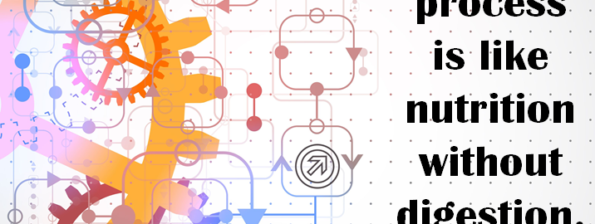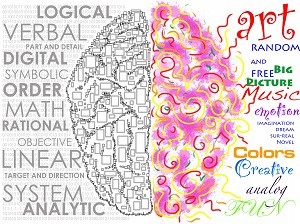Tag Archives: cognitive modeling
08 Feb The Power of Inference

Joe Roushar – February 2024 Sense Perception and Cognition What can you infer about the things in this picture: Our senses are constantly feeding information to our brains, but how much can we trust? Inference is guesswork performed by the frontal cortex based on circuitous electrical signal pathways from the sensory parts of the brain, […]
04 Jul Cognitive Multi-Processing

Joe Roushar – July 2017 Divide and Conquer Swarm computing applications, with large numbers of autonomous agents are beginning to appear and deliver stunning results. The combination of autonomy, simple tasks and parallelism has great power. Today I’ll address parallel computing and models for breaking down computational problems. I will not address the question of autonomy today, […]
09 Jan 2017 – The Year of AI

Joe Roushar – January 2017 Intelligent but Artificial Recently, January 5th, 2017, on my ride into work I was listening to BBC World Update with Dan Damon, as I often do, and heard him interviewing someone about the new artificial intelligence (AI) app for the British National Health Service from Babylon Health (similar story on […]
30 Nov Architecting Meaningful Relationships

Joe Roushar – November 2016 Getting the Knowledge Out How do you know — anything? Chemicals and electrical impulses splash around in the brain, and voila: we understand the meaning of life, the universe and everything. We have looked at how synapses connect neurons, and how taxonomical and other associations connect concepts, but is it […]
11 May Thinking in Parallel

A Parallel Expert I once rode the Trans-Siberian Railway from Moscow to Ulan-Batar, Mongolia (not the picture at right – the engines were diesel). Several times along the journey we passed slower trains, and we were passed by faster ones. When people and freight are confined to a single lane, the speed of the slowest defines the speed of […]
23 Feb Inference in Knowledge Apps

In Section 5 we discussed different kinds of knowledge, including existential or hierarchical knowledge and causal knowledge. In Section 7 we discussed modeling approaches and search techniques that could be applied to any kind of knowledge. We saw that causal knowledge can be modeled as chains of causes and effects, and that existential knowledge can be […]
08 Feb Just In Time Knowledge

One of the beautiful things about the human brain is it’s adaptability: people can “change” their minds at the last minute based on the changing situation (context). This is not trivial, but I believe that it is one of the characteristics of human cognition that is relatively straightforward to mimic in computer programs and apps. In […]







